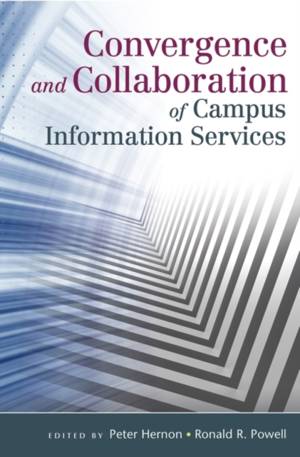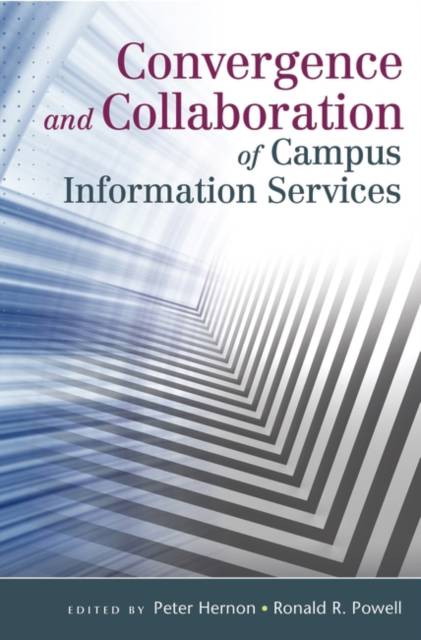
- Retrait gratuit dans votre magasin Club
- 7.000.000 titres dans notre catalogue
- Payer en toute sécurité
- Toujours un magasin près de chez vous
- Retrait gratuit dans votre magasin Club
- 7.000.0000 titres dans notre catalogue
- Payer en toute sécurité
- Toujours un magasin près de chez vous
Convergence and Collaboration of Campus Information Services
Ronald Powell, Peter Hernon
Livre broché | Anglais
110,45 €
+ 220 points
Description
Convergence and collaboration enable an academic library to be more fully engaged with its campus. In its simplest form, convergence is defined as joint activities of a campus's units to further their shared mission of supporting teaching, learning, and inquiry. Convergence, which involves collaboration in both organizational structures and service delivery, leads to users benefiting from contact with individuals who have relevant expertise. Collaboration also may lead to convergence of collections, thereby enhancing library service to an institution's constituents.
Specific examples of convergence/collaboration include centers for teaching excellence, tutor and writing centers, information arcades, facilities for multi-media production and delivery, information and learning commons, cafes, photocopying centers; centers for distance education, participation in the use of course management software (e.g., Blackboard) to make library resources available to classes digitally and to make students more information literate, publishing (e.g., university presses and digital collections, including institutional repositories), counseling and career centers, and services for students for whom English is a secondary language (mostly in community colleges). For anyone interested in how academic libraries can be more closely tied to the various missions of the colleges/universities in which they reside.Spécifications
Parties prenantes
- Auteur(s) :
- Editeur:
Contenu
- Nombre de pages :
- 252
- Langue:
- Anglais
Caractéristiques
- EAN:
- 9781591586036
- Date de parution :
- 30-10-08
- Format:
- Livre broché
- Format numérique:
- Trade paperback (VS)
- Dimensions :
- 155 mm x 231 mm
- Poids :
- 385 g

Les avis
Nous publions uniquement les avis qui respectent les conditions requises. Consultez nos conditions pour les avis.






